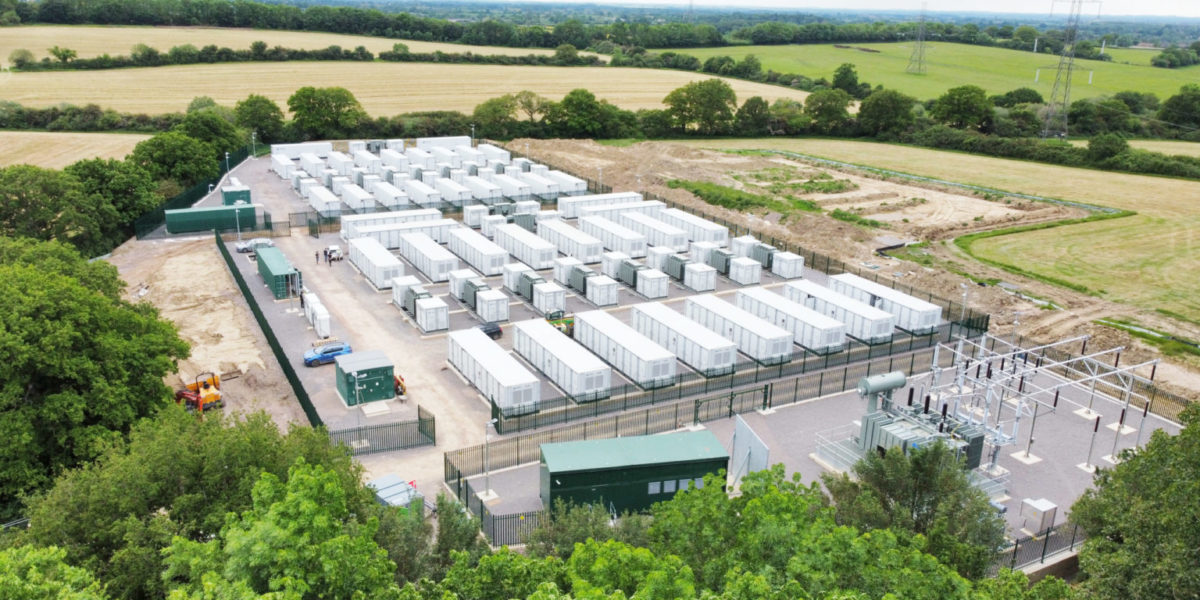From pv magazine Germany.
Chinese inverter and storage system manufacturer Sungrow has completed one of wider Europe's largest energy storage projects, in the United Kingdom.
The Minety power plant has a capacity of 100 MW / 100 MWh and is intended to provide services for grid frequency regulation and maximize the use of renewable energies.
The project saw two 50 MW batteries developed by Penso Power and funded by state-owned China Huaneng Group and CNIC Corporation. Initially, the project was a single 50 MW battery completed in 2020, with a second battery added during 2021.
As a result of a short-term drop in network frequency, there was a large-scale power outage in the United Kingdom around two years ago. After that, the authorities gave priority to the construction of large storage facilities in order to prevent this kind of incident from happening again. The use of some of the large storage systems installed at the time, in fact, helped prevent a total failure of the country's electricity system.
Popular content
Construction of the Minety large storage facility began at the end of 2019, for which Sungrow supplied both nickel-manganese-cobalt (NMC) and lithium-iron-phosphate (LFP) battery solutions with a high level of integration. According to the company, this reduced the space requirement, shortened the commissioning time and reduced system costs by 5%.
The new large storage system fulfills the latest British frequency regulation requirement, dynamic containment. This means that the system has to react to the power instructions of the network within a second. Only about 30% of the large storage facilities in Great Britain are equipped with this function, according to Sungrow.
Shell Energy Europe Limited, the gas and electricity unit of the Anglo-Dutch fossil fuel giant, agreed to buy power from the project under a long-term power purchase agreement (PPA), though terms were not disclosed.
This content is protected by copyright and may not be reused. If you want to cooperate with us and would like to reuse some of our content, please contact: editors@pv-magazine.com.



5 comments
By submitting this form you agree to pv magazine using your data for the purposes of publishing your comment.
Your personal data will only be disclosed or otherwise transmitted to third parties for the purposes of spam filtering or if this is necessary for technical maintenance of the website. Any other transfer to third parties will not take place unless this is justified on the basis of applicable data protection regulations or if pv magazine is legally obliged to do so.
You may revoke this consent at any time with effect for the future, in which case your personal data will be deleted immediately. Otherwise, your data will be deleted if pv magazine has processed your request or the purpose of data storage is fulfilled.
Further information on data privacy can be found in our Data Protection Policy.